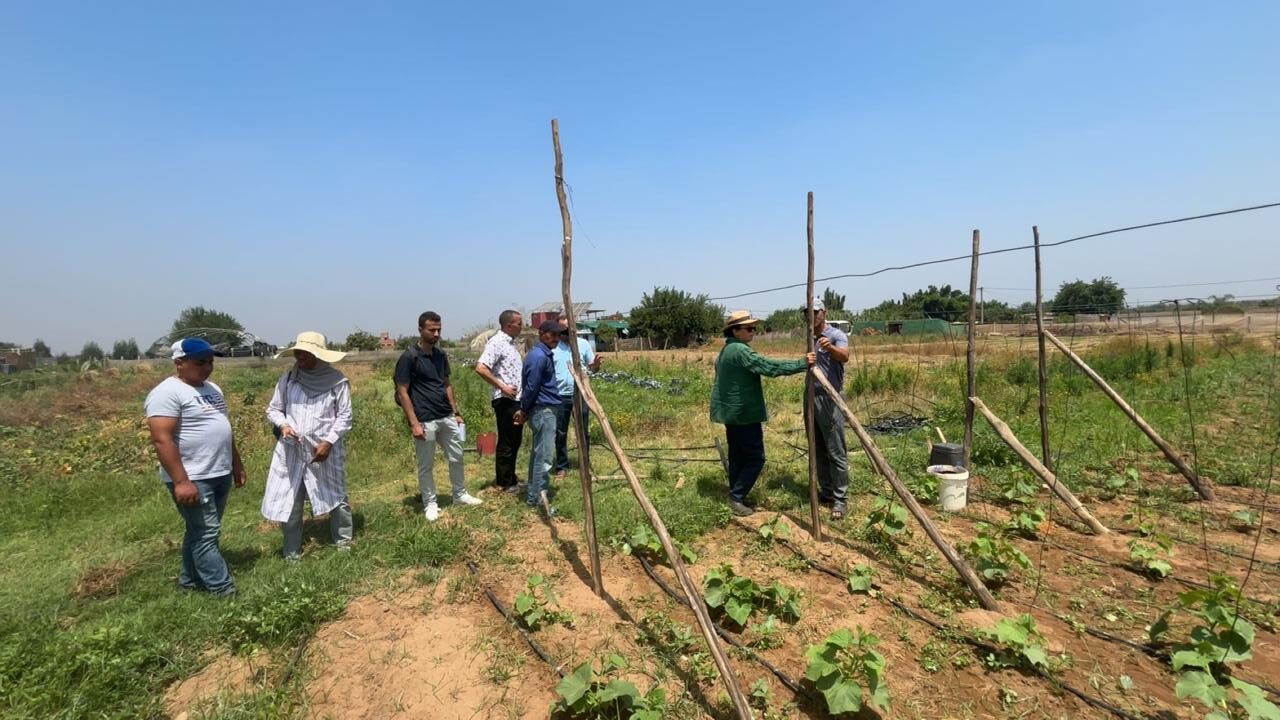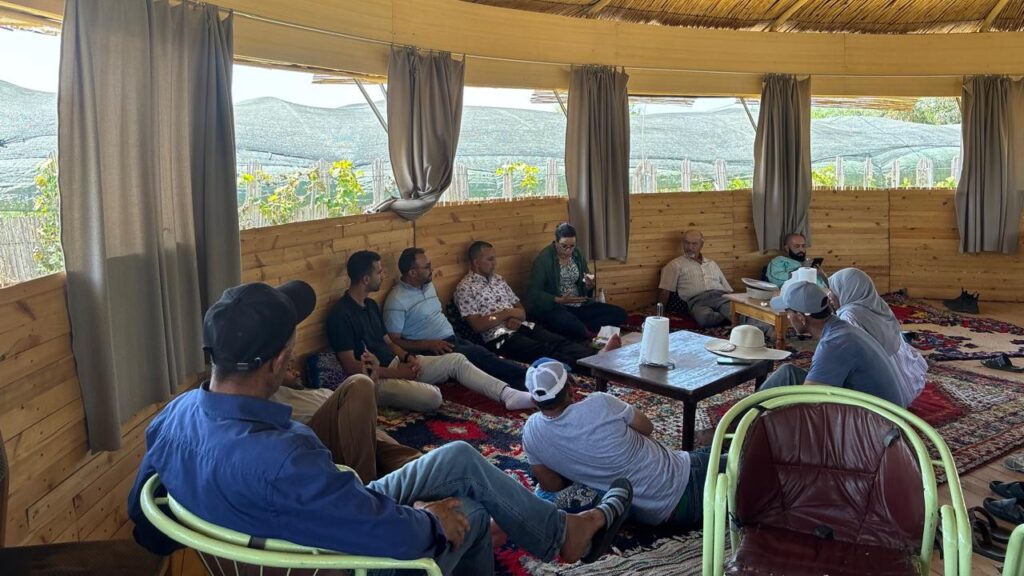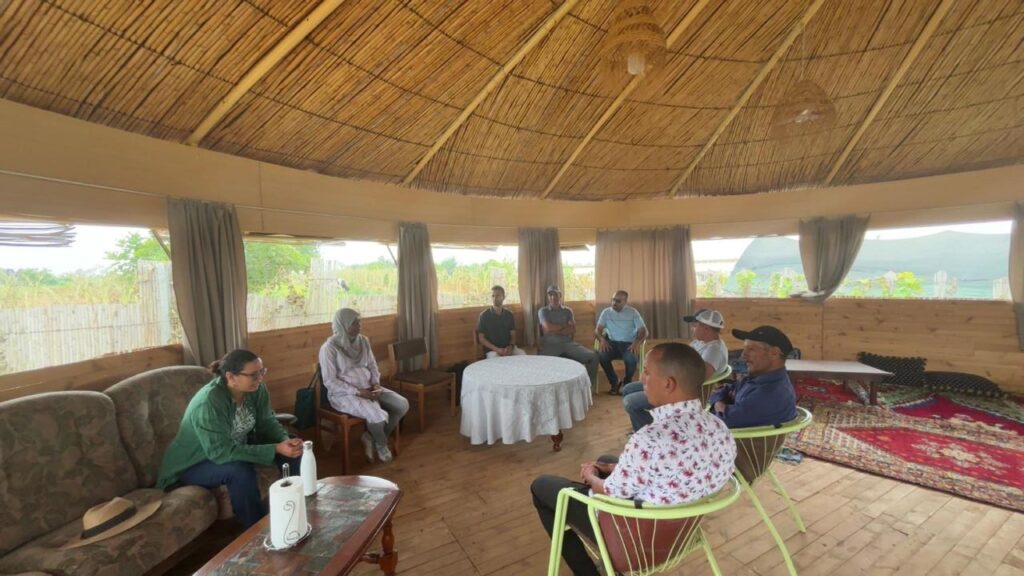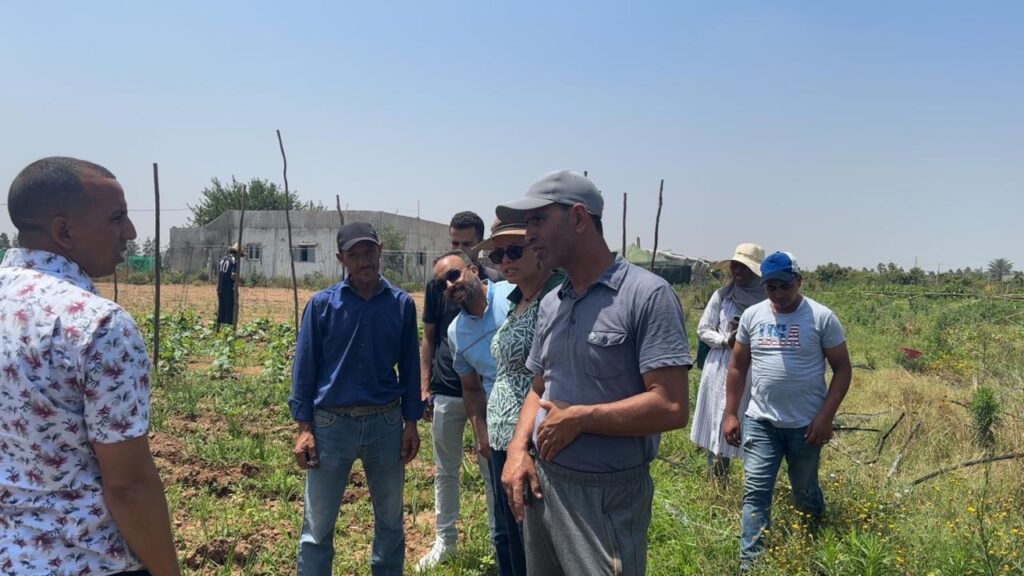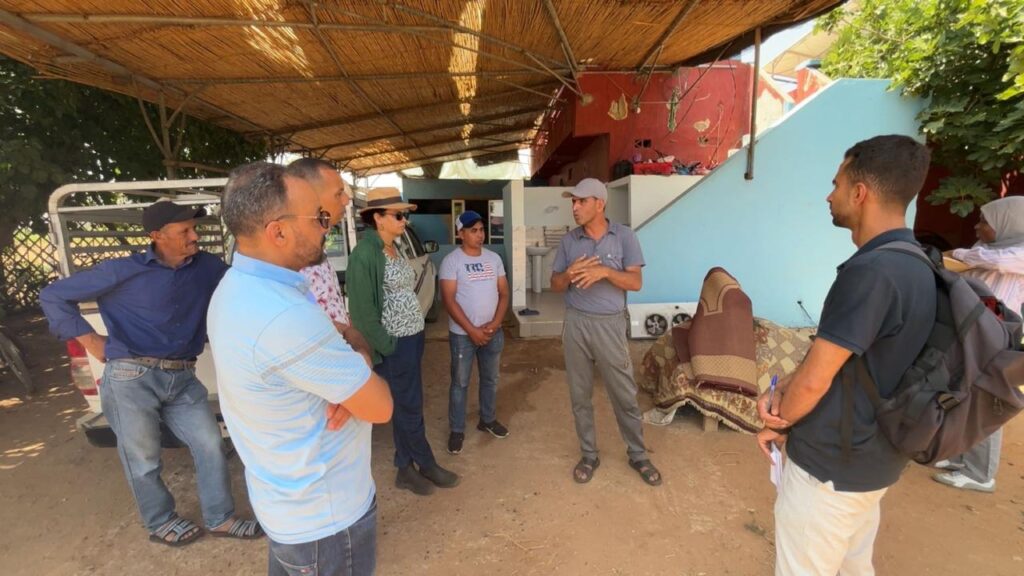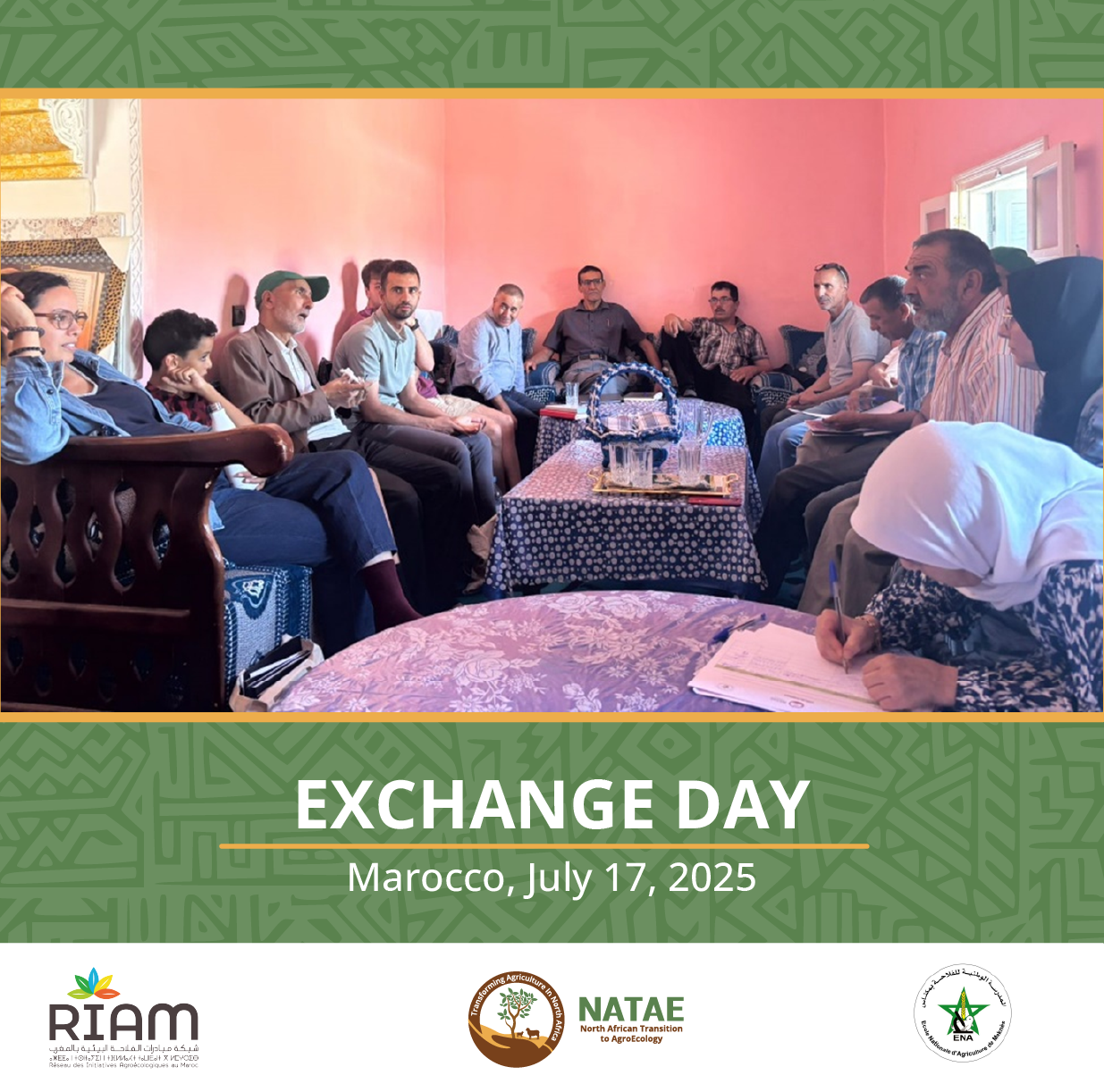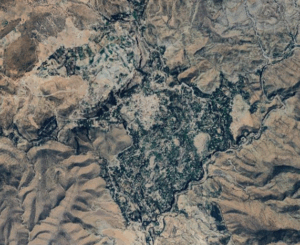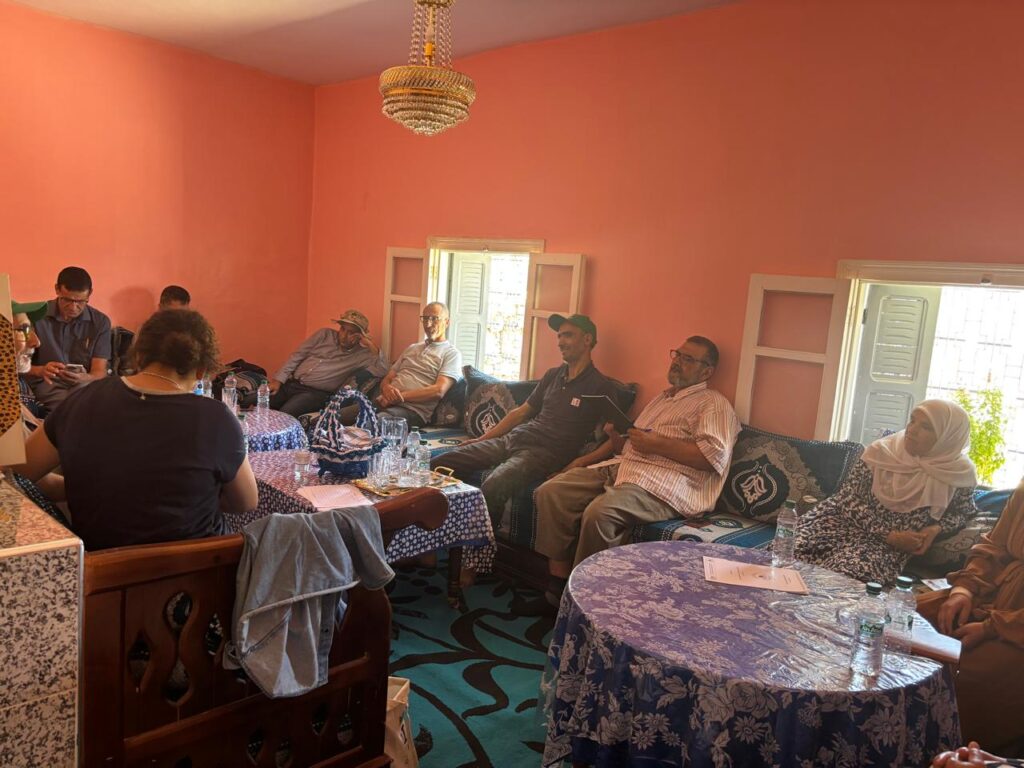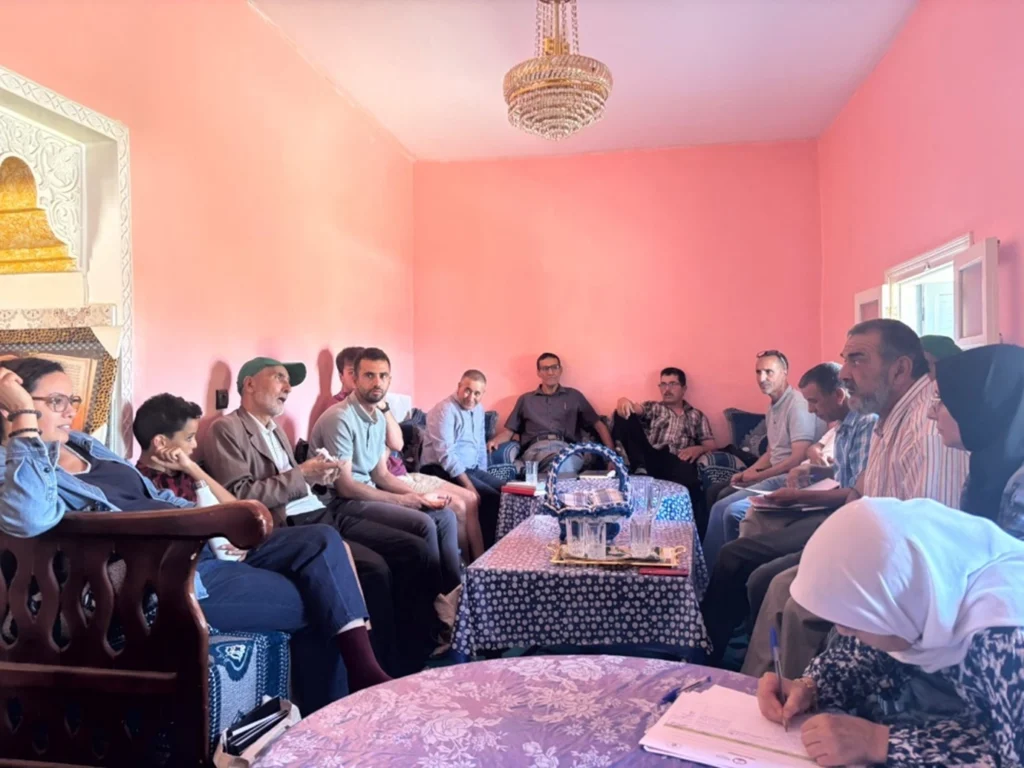Study Trip - Living Lab Aït Otmane
Marocco, Rabat, July 4, 2025
1. Background and Purpose:
As part of the NATAE project, the National School of Agriculture of Meknes organized, in collaboration with the Network of Agroecological Initiatives in Morocco, on July 4, 2025, a study trip to Rabat for the benefit of the farmers of the Living Lab Aït Otmane. This initiative is part of a participatory approach aimed at strengthening farmers’ capacities and promoting the transfer of knowledge in agroecology. The main objective of this outing was to promote the exchange of experiences between the participants and to allow them to discover innovative agroecological practices, in particular through meetings with experts, pioneer farmers and visits to exemplary agricultural sites. This trip also stimulated collective reflection on sustainable alternatives to conventional agricultural practices, in line with current climate and environmental challenges.
2. Location of the visit:
Farm visited: organic farm located in El Arejat GPS coordinates: 34°00’47.7″N, 6°38’48.2″W
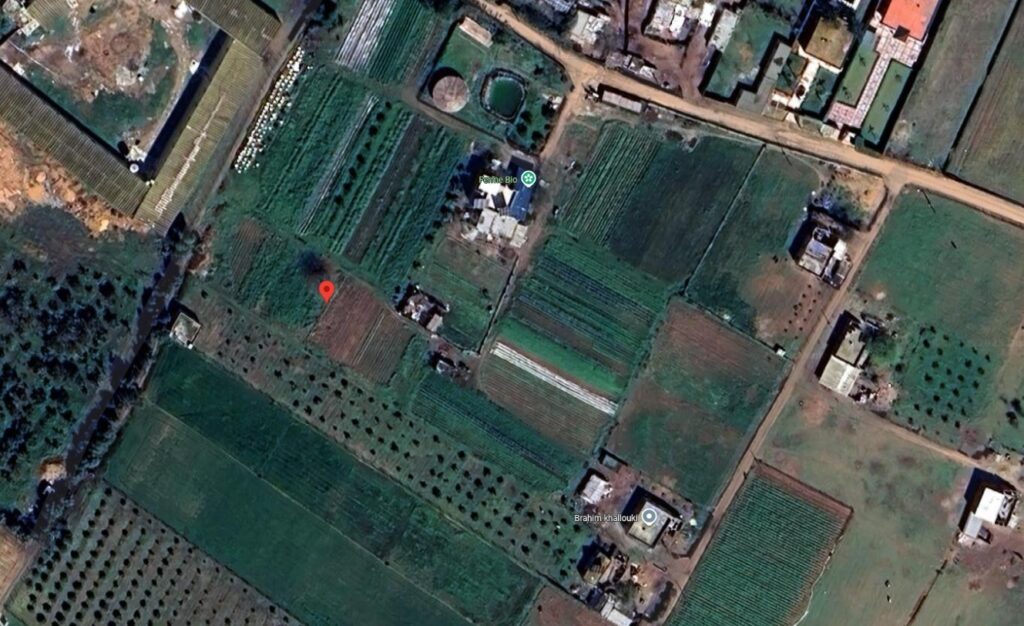
3. Programme of activities
Activity 1: Welcome and initial exchanges
The day began with a welcome and presentation session, during which each participant had the opportunity to introduce themselves and explain their agricultural experience, thus promoting a first rich exchange between the farmers of the Aït Otmane Living Lab and the hosts of the farm visited. These presentations helped to create a climate of trust, conducive to the exchange of know-how and the sharing of agricultural practices. This first step laid the foundations for an open and constructive dialogue throughout the day.
Activity 2: Presentation of the agroecological experience
- Farm history
The farm visited represents a concrete example of a successful transition to agroecology. The adoption of agroecological practices began in 2006, on a modest area of about 1000 m². As early as 2007, agricultural production was launched, marking the beginning of a cropping system based on ecological principles, including organic fertilization, crop associations and the integration of livestock and beekeeping. The farm has also begun the direct marketing of its products, mainly in central Rabat, thus contributing to the dissemination of products from sustainable agriculture.
Exchange on major challenges
An open exchange was organized between the farmers of the Living Lab Aït Otmane and the managers of the host farm. This exchange highlighted several major challenges faced by farmers engaged in agroecology:
Lack of specific training: Many farmers point to the lack of programmes adapted to agroecology, thus limiting their ability to improve or diversify their practices.
Difficulties in accessing the market: the valorization of agroecological products remains a challenge, in particular due to the lack of alternative distribution channels and competition with conventional products.
Need for technical support: producers express an increased need for supervision, particularly in soil fertility management, ecological pest control and production organization.
This offers participants the opportunity to share their experiences, to identify with the challenges encountered and to think together about sustainable solutions that are appropriate to the local context.
Activity 3: Guided tour of the farm
The third activity of the day consisted of a detailed guided tour of the host farm, which gave participants the opportunity to explore a variety of agroecological agricultural practices applied on site. This visit was a crucial moment to see in a tangible way the implementation of sustainable principles in the agricultural field.
Key practices observed included:
Integrated agroecology: the farm applies a variety of agricultural techniques that respect the environment and are adapted to local contexts.
Agroforestry: judicious combination of trees, crops and sometimes livestock on the same plot, promoting biodiversity and the resilience of production systems.
Permaculture: development of agricultural land according to the principles of sustainability, efficiency and positive interaction between the elements of the system.
Crop rotation and association: implementation of regular crop rotation and crop associations in strips of 6 to 7 metres, in order to prevent diseases, improve soil fertility and optimise space.
Varied market gardening: the farm develops a great cultural diversity, especially in seasonal vegetables.
Beekeeping: The presence of beehives promotes natural pollination and strengthens the surrounding ecosystems.
Livestock: integrated into the production system, livestock contributes to soil fertilization.
Organic fertilization: use of manure produced on site, ensuring natural enrichment of the soil.
Manual weeding: the use of mechanical and manual methods to limit the use of chemicals.
Sustainable irrigation system: use of drip irrigation powered by a solar pump, with water storage in a basin, guaranteeing efficient and economical management of the resource.
The farm sells directly at home, with a regular clientele of between 40 and 60 families, making it possible to strengthen the producer-consumer link, to reduce intermediaries and to promote fresh and local products.
Activity 4: Discussion on the SPG Certification System – RIAM
- Presentation of the Participatory Guarantee Scheme (GSP) – RIAM
- GSP requirements
- GSP benefits for small-scale producers
- Procedure for obtaining SPG certification
